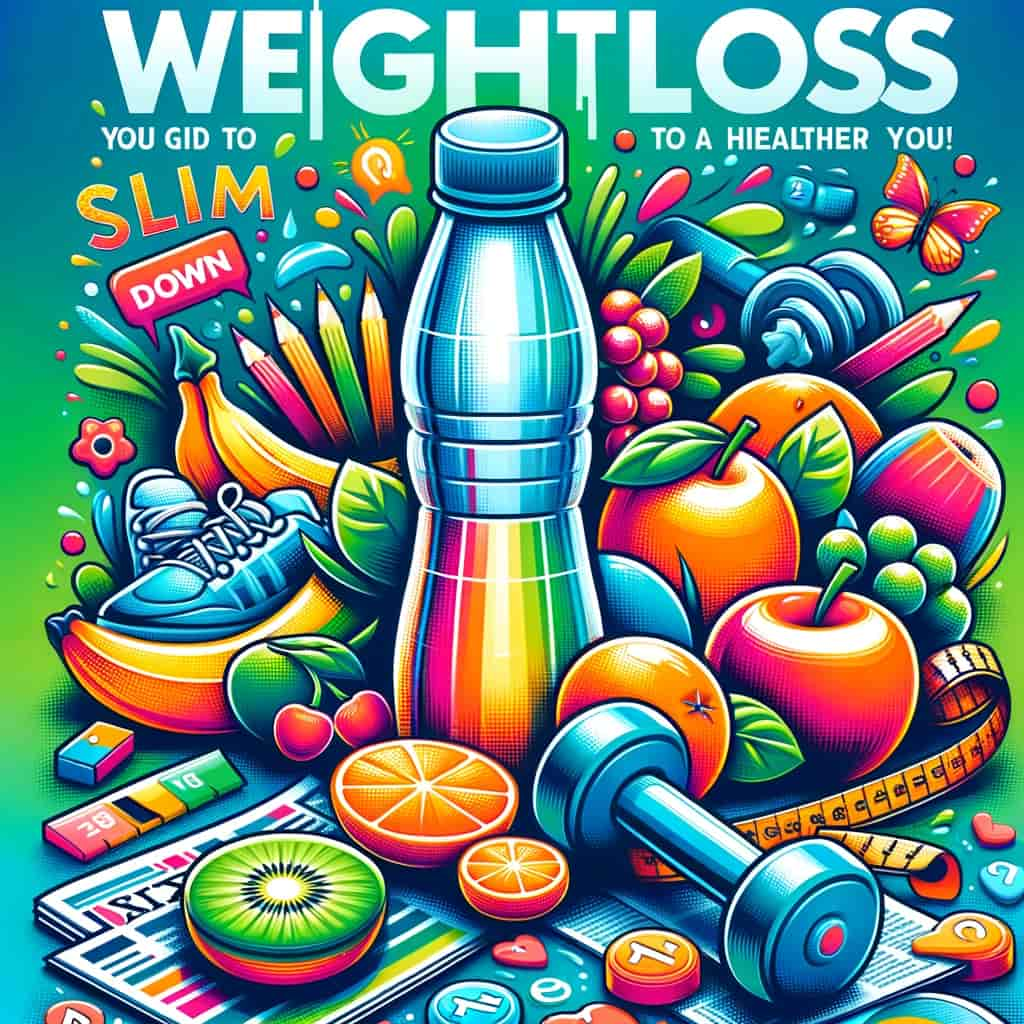Are you tired of sifting through a sea of conflicting advice on how to shed those extra pounds? You’re not alone. Weight loss is one of the most sought-after goals for many people, and it’s no surprise that the internet is flooded with information on the subject. But fear not, because in this comprehensive guide, we will unravel the science behind healthy weight loss, debunk myths, and provide you with actionable tips to achieve your fitness goals.
The Calorie Bank: Your Body’s Ledger
Imagine your body as a bank account, where every calorie you consume is a deposit, and every calorie you burn is an expense. If you want to increase your bank balance (lose weight), you must either earn more (burn more calories) or spend less (consume fewer calories).
Your daily calorie intake accumulates in your body, and if you consistently consume more calories than you burn, the excess is converted into fat, leading to weight gain. To achieve weight loss, you need to create a calorie deficit by either reducing your calorie intake or increasing your calorie expenditure through physical activity.
Basal Metabolic Rate (BMR)
Every person has a Basal Metabolic Rate (BMR), which represents the number of calories your body burns at rest to maintain essential functions like breathing, digestion, and cell repair. Factors like age, weight, height, and muscle mass determine your BMR. You can calculate your BMR using an online calculator.
For example, a 28-year-old, 186 cm tall, 80 kg individual may have a BMR of 1828 calories per day. This means they burn this many calories even without any physical activity.
Thermic Effect of Food (TEF)
Not all calories are created equal. The food you consume affects your calorie expenditure. The Thermic Effect of Food (TEF) accounts for the energy your body expends digesting, absorbing, and storing the food you eat. Some foods have a higher TEF, meaning they require more energy to process, while others have a lower TEF.
- Low TEF Foods: Fats, oils, flour, butter
- High TEF Foods: Whole grains, protein-rich foods, dairy, high-fiber vegetables, fruits
While you don’t need to calculate TEF for every meal, it’s essential to understand that not all calories are absorbed in the same way. High TEF foods can help you feel full and satisfied, even with the same calorie intake.
The Role of Exercise in Healthy Weight Loss
Exercise is a crucial component of healthy weight loss. While it’s theoretically possible to lose weight by solely reducing calorie intake, it’s not recommended due to potential negative effects on hormonal balance, mood, and overall health.
Basal Metabolic Rate and Brain Health
Your BMR, which accounts for calories burned at rest, includes energy used by your brain. Approximately 20% of your body’s energy expenditure is attributed to your brain. When you drastically reduce calorie intake without exercising, it can lead to fatigue, irritability, and difficulty focusing, as the brain is deprived of essential nutrients.
Exercise for Healthy Weight Loss
Four key factors play a role in healthy weight loss:
- Diet Control: Focus on a balanced diet that includes proteins, carbohydrates, fats, vitamins, minerals, and water. Consult a dietician for personalized guidance.
- Exercise: Engage in regular physical activity, including cardio, strength training, and stretching exercises. Find activities you enjoy to make exercise a sustainable part of your routine.
- Proper Sleep: Aim for 7-9 hours of quality sleep each night to support weight loss and overall well-being.
- Stress Management: High stress levels can hinder weight loss. Incorporate stress-reduction techniques like meditation, sports, or spending time with loved ones.
Importance of Balanced Nutrition
Balanced nutrition is key to healthy weight loss. Your diet should include:
- Whole grains
- Fibrous fruits and vegetables
- Lean proteins
- Healthy fats
Avoid or limit:
- Refined flour
- Added sugar
- Bad fats (saturated and trans fats)
- Processed and packaged foods
Debunking Diet Myths
In the world of weight loss, myths and misconceptions abound. Let’s address some common diet myths:
Myth 1: Low-Carb Diets Are the Only Way
Research has shown that both low-carb and high-carb diets can be equally effective for weight loss. The ultimate factor is calorie deficit, not carb intake.
Myth 2: High-Protein Diets Lead to Automatic Muscle Gain
While protein is essential for muscle growth and repair, excessive protein intake can still contribute to weight gain if not balanced with calorie expenditure.
Myth 3: Negative Calorie Foods Exist
There’s no scientific evidence to support the idea of “negative calorie” foods. While some foods have a high TEF, they can’t offset more calories than they provide.
Myth 4: Spot Reduction Works
Spot reduction, the idea of losing fat from specific body areas through targeted exercises, is largely ineffective. Fat loss occurs throughout the body as a result of overall calorie deficit.
Finding Your Healthy Balance
Weight loss isn’t about extreme diets or eliminating entire food groups; it’s about creating a sustainable lifestyle that includes a balanced diet, regular exercise, proper sleep, and stress management. Remember that everyone’s weight loss journey is unique, and there’s no one-size-fits-all approach.
Take the 30-Day Challenge
Are you up for a challenge? Take the 30-Day Challenge: avoid refined flour, added sugar, bad fats, and packaged foods for a month. Instead, embrace whole grains, fresh fruits and vegetables, lean proteins, and healthy fats. Share your progress in the comments below and inspire others on their journey to healthy weight loss!
In conclusion, healthy weight loss is achievable by maintaining a calorie deficit, embracing a balanced diet, incorporating regular exercise, getting adequate sleep, and managing stress. It’s time to embark on your weight loss journey armed with science-based knowledge and a commitment to a healthier you!




